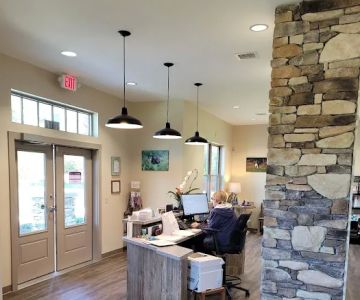Can You Do a Veterinary Apprenticeship? Explore the Path and Benefits
As an animal lover, have you ever wondered about working with animals professionally? A veterinary apprenticeship may be the perfect way to begin your journey into the veterinary field. Whether you aspire to be a veterinarian, veterinary technician, or simply work in an animal care role, a veterinary apprenticeship offers hands-on experience, mentorship, and valuable knowledge. But how does one get started, and what benefits does it bring?
The Growing Demand for Veterinary Professionals
Veterinary care is a growing field with increasing demand for skilled professionals. From treating household pets to working with wildlife and livestock, veterinarians play a critical role in animal health and wellbeing. According to the Bureau of Labor Statistics, the employment of veterinarians is expected to grow by 16% from 2019 to 2029, much faster than the average for other professions. With more pet owners and diverse animal care needs, the veterinary industry continues to expand, creating opportunities for those interested in animal health.
What Is a Veterinary Apprenticeship?
A veterinary apprenticeship is an opportunity to learn and train under the guidance of an experienced veterinarian or veterinary technician. Unlike traditional academic programs, apprenticeships allow individuals to gain practical, real-world experience while earning a living. Apprenticeship programs vary widely in terms of structure and duration but typically involve both classroom education and hands-on experience in veterinary clinics or hospitals.
Why Choose a Veterinary Apprenticeship?
There are several reasons why pursuing a veterinary apprenticeship can be a great option. First and foremost, it provides a unique opportunity to gain practical experience that will make you highly competitive in the job market. In addition, veterinary apprenticeships can offer:
- Hands-on training: Learn the skills you need to succeed in a veterinary career while working directly with animals.
- Mentorship: Work under experienced professionals who can guide you in your learning journey.
- Faster career progression: Apprenticeships often lead to full-time employment with the same employer, or a strong recommendation to potential employers.
- Affordability: Unlike expensive college programs, apprenticeships allow you to earn while you learn.
How to Get Started with a Veterinary Apprenticeship
If you're wondering how to get started with a veterinary apprenticeship, here are some essential steps you can take:
1. Research Available Programs
Start by researching available veterinary apprenticeship programs in your area. Many veterinary clinics, hospitals, and animal care facilities offer apprenticeship opportunities. You can search online, visit local clinics, or contact animal welfare organizations to inquire about apprenticeship openings.
2. Get Experience and Volunteering
Before applying for an apprenticeship, it can be helpful to gain some experience in the field. Volunteer work at an animal shelter, pet store, or animal hospital can provide you with basic knowledge and exposure to animal care. This experience can make you more attractive to potential employers and may help you secure an apprenticeship.
3. Apply for an Apprenticeship
Once you've identified suitable programs, prepare your resume and apply. Be sure to highlight any relevant experience, skills, and certifications you may have. It’s also essential to demonstrate your passion for animals and your desire to learn and grow in the veterinary field.
4. Complete the Apprenticeship Program
During your apprenticeship, you'll receive both theoretical and practical training. Expect to learn about animal anatomy, common illnesses, emergency procedures, and other essential veterinary knowledge. You’ll work closely with experienced veterinarians and technicians who will guide your development. Depending on the program, apprenticeships can last anywhere from several months to a few years.
What You Can Expect During Your Veterinary Apprenticeship
During your apprenticeship, you’ll be exposed to various aspects of veterinary care. Some key activities and responsibilities might include:
- Assisting in animal examinations: You’ll be trained to help with routine check-ups, vaccinations, and physical examinations.
- Preparing surgical tools: You may assist in preparing and sterilizing tools for surgery.
- Administering medications: Learn how to correctly administer medications to animals under supervision.
- Customer service: Learn how to interact with pet owners, answer questions, and provide instructions on post-care.
- Cleaning and maintenance: Assist in keeping the veterinary clinic clean and organized.
Benefits of Completing a Veterinary Apprenticeship
Completing a veterinary apprenticeship offers numerous benefits, not only in terms of gaining essential experience but also in terms of career growth. Apprenticeships provide:
1. Invaluable Work Experience
Work experience in a real-world setting is invaluable. You'll learn the ins and outs of the profession and gain skills that can’t be taught in a classroom.
2. Networking Opportunities
During your apprenticeship, you'll build relationships with industry professionals who may offer mentorship or help you secure future job opportunities. Networking can be crucial in advancing your career.
3. Increased Job Prospects
Veterinary employers often prefer candidates with hands-on experience. Completing an apprenticeship can significantly improve your chances of securing a full-time veterinary position upon completion.
Conclusion: A Stepping Stone to Your Veterinary Career
If you’re passionate about working with animals and pursuing a career in veterinary medicine, a veterinary apprenticeship is an excellent way to get started. With practical training, mentorship, and valuable experience, you’ll be well-equipped to take the next step toward becoming a veterinary professional. Whether you're looking to become a veterinarian or pursue a career as a veterinary technician, the apprenticeship path offers a rewarding and practical approach to animal care.
If you're interested in learning more about veterinary training or finding apprenticeship opportunities, visit Scent Snob to explore the best resources and services available for aspiring veterinary professionals.











